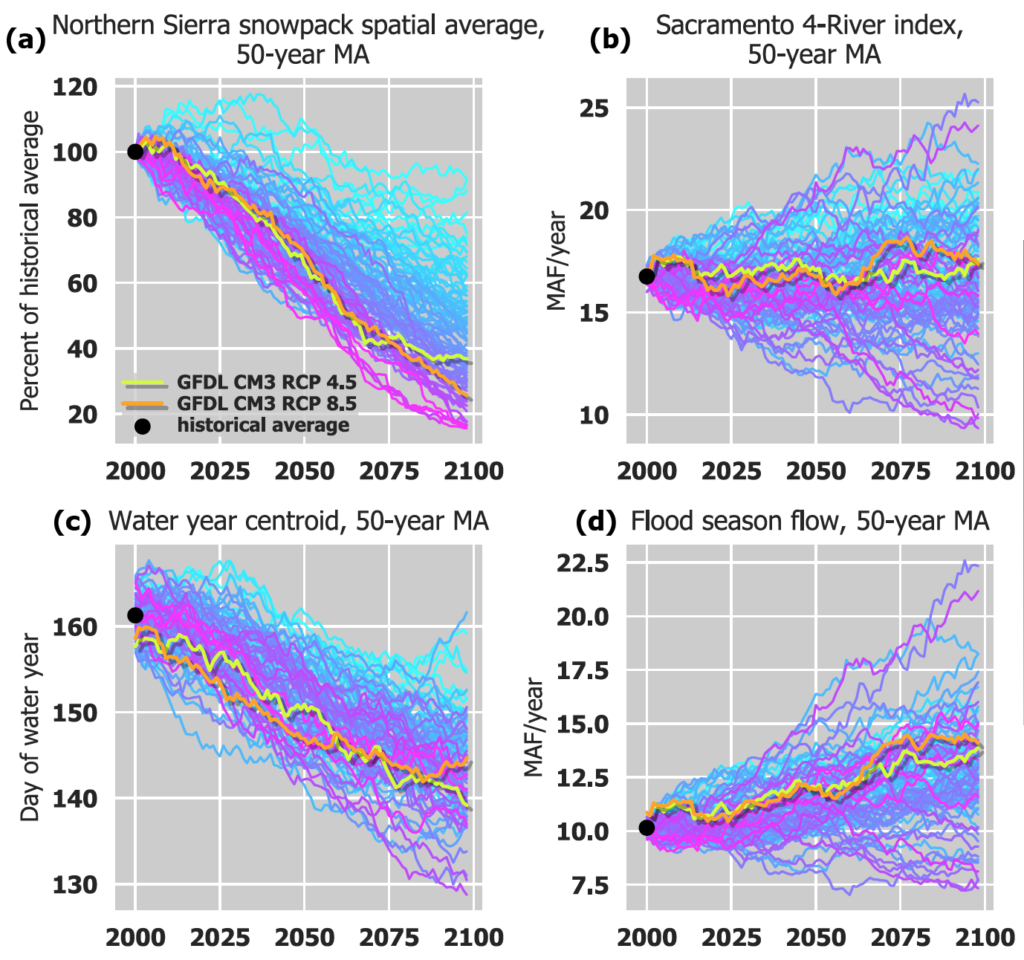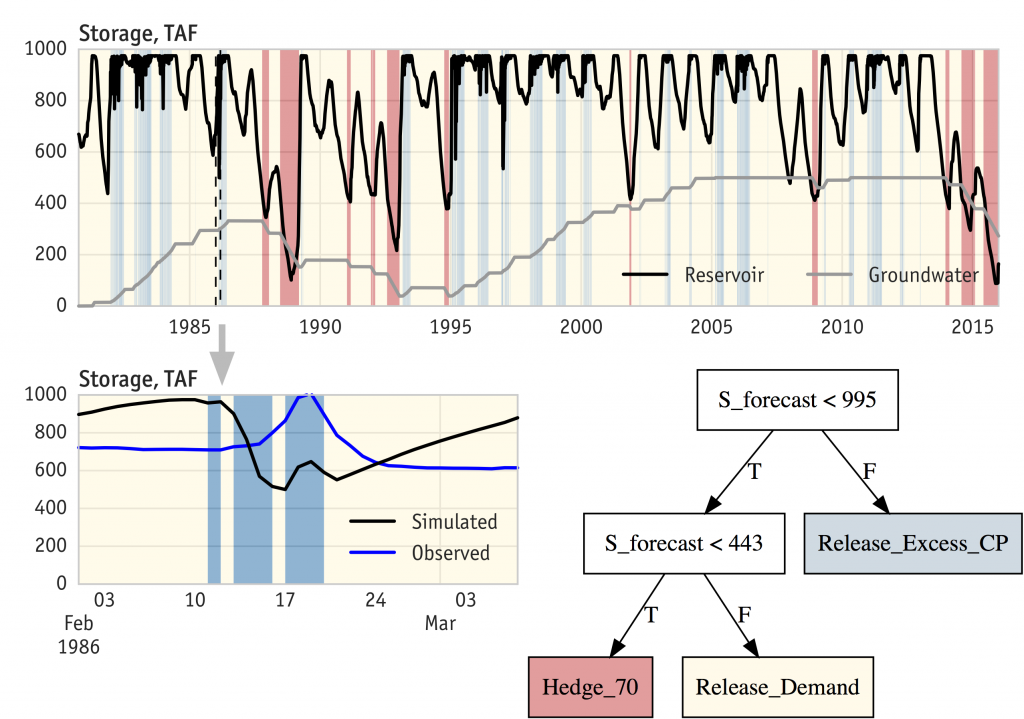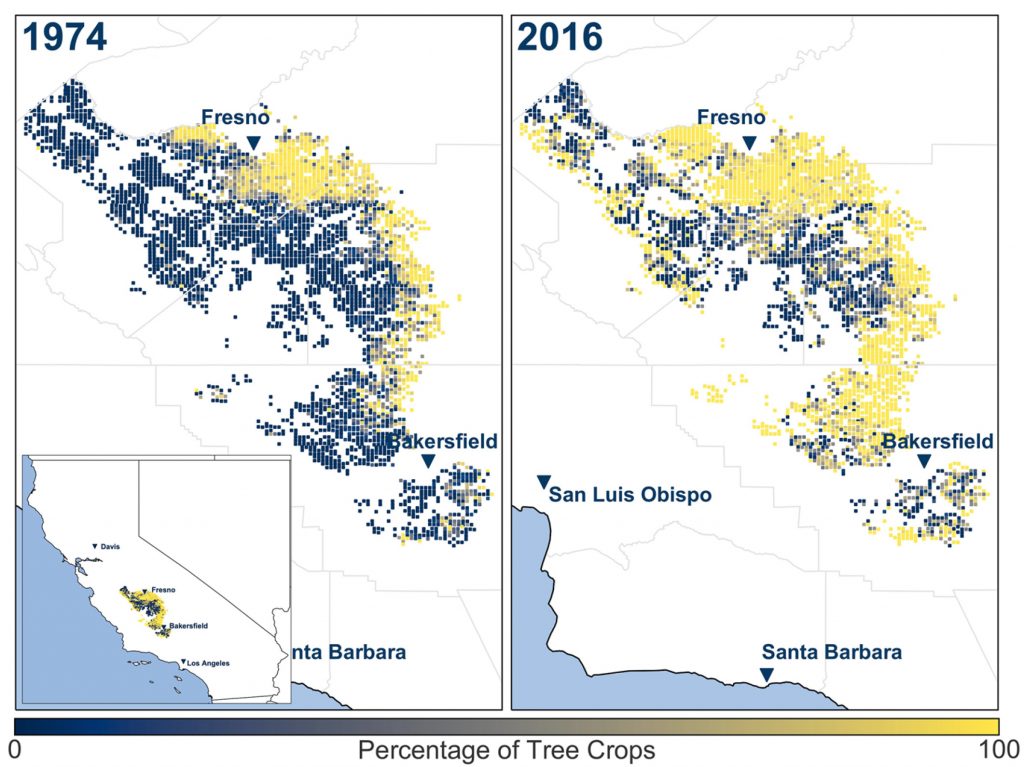
Climate Adaptation Planning
Water infrastructure and operations must adapt to prepare for a range of possible futures beyond their original designs. Our research develops dynamic adaptation policies that respond to new climate observations and projections over time as uncertainties are partially resolved. A key step in this process is the ability to detect significant changes in hydrology and system performance as they occur.
Publications: Chen and Herman (2024), Cohen and Herman (2021), Herman et al. (2020)

Multi-Objective Reservoir Control
Reservoir networks must balance multiple competing objectives, such as water supply reliability, hydropower production, and environmental flows. Our research integrates multi-objective optimization methods with simulation models to assess the system-level tradeoffs between decision alternatives. In particular, we advance the use of short-term precipitation forecasts and other sources of information to improve system performance.
Publications: Taylor et al. (2024), Brodeur et al. (2025), Zhang et al. (2022)

Dynamics of Human-Environmental Systems
The challenges of long-term uncertainty in climate and hydrology are compounded by uncertainty in human behavior, including land use and reservoir regulation. Our research investigates data-driven and conceptual dynamical systems models of these feedbacks to understand their implications for sustainable water management.
Publications: Wang et al. (2024), Mautner and Herman (2024), Molla et al. (2022)